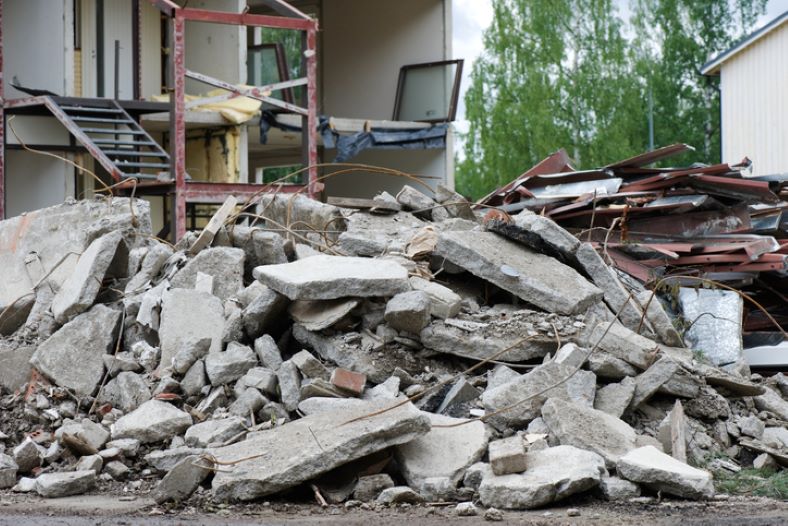Common Causes of Catastrophic Injuries

Catastrophic injuries can have life-altering consequences for individuals, often resulting in severe physical and psychological damage. These types of injuries are typically caused by certain common factors that pose significant risks to human safety. Understanding the common causes of catastrophic injuries and what to do if your or a loved one is injured is crucial to ensure you are properly compensated for these devastating injuries.
What makes an injury catastrophic?
A catastrophic injury is an injury that results in severe, often permanent, damage that significantly impacts an individual’s overall well-being and quality of life. These injuries typically have long-lasting effects on physical capabilities, psychological health, or both. Catastrophic injury types include:
- Traumatic brain injuries
- Spinal cord injuries
- Paralysis
- Severe burns
- Amputations or loss of limbs
- Organ damage
- Multiple fractures
- Compound bone breaks
What is the difference between a catastrophic injury and a personal injury?
A personal injury is any injury caused by someone else’s negligence or intentional actions that harm an individual. This can include broken bones, soft tissue damage, whiplash, or even minor cuts and bruises. Personal injuries can occur due to car accidents, slip-and-falls, workplace accidents, or medical malpractice.
On the other hand, a catastrophic injury is a specific subset of personal injury that involves severe physical or psychological harm resulting in long-term disabilities or impairments. Catastrophic injuries have more extensive consequences on an individual’s life due to their severity and may require ongoing medical treatment and care for years, if not lifelong.
All catastrophic injuries fall under personal injury claims. However, it is essential to differentiate them as they involve more severe levels of impact on an individual’s life and often involve higher financial settlements due to the extent of damages incurred.
What are some common catastrophic injury causes?
- Motor vehicle accidents: Car, motorcycle, or truck accidents can result in severe injuries like traumatic brain injuries (TBIs), spinal cord injuries (SCIs), and multiple fractures
- Workplace incidents: Falls from heights, equipment malfunctions, construction site accidents, or exposure to hazardous substances can lead to catastrophic injuries such as paralysis, amputations, burns, or internal organ damage
- Medical malpractice: Surgical errors, misdiagnosis, and failure to diagnose conditions promptly or accurately can cause devastating consequences for patients, including severe infections, permanent disabilities, and brain damage
- Sports injuries: High-impact sports like football or skiing can result in catastrophic injuries such as head/neck trauma, leading to TBIs and SCIs
- Defective products: Product defects like faulty machinery or equipment with inadequate safety features may cause serious harm if they malfunction during use
- Acts of violence: Assaults and incidents involving firearms or weapons may lead to long-term disabilities and impairments
- Slip-and-fall accidents: Falls on poorly maintained premises without proper warning signs could result in severe neurological injury or spinal cord damage
- Recreational activities mishaps: Inadequate supervision at amusement parks, water parks, and bounce houses could expose individuals to risks, resulting in serious head and spinal traumas
These are just a few catastrophic injury causes. Numerous other factors could contribute to the types of catastrophic injuries experienced depending on each case’s specific circumstances.
How common are catastrophic injuries?
Catastrophic injuries are relatively rare compared to less severe injuries. In the United States, there are approximately 17,000 new cases of SCI annually. This figure includes both traumatic and non-traumatic SCIs.
Regarding TBIs in the United States, the National Library of Medicine reports around 1.7 million TBI-related injuries annually. In 2021 alone, the CDC reported over 69,000 TBI-related deaths annually, or about 190 deaths daily.
While these statistics provide a snapshot of SCIs and TBIs, it is worth noting various other forms of catastrophic injuries, such as severe burn injuries or multiple limb fractures, occur with varying frequencies as well. Even though catastrophic injuries account for a smaller percentage of overall injury statistics, their impact on individuals’ lives can be immense and have long-term consequences.
What types of damages can be recovered from a catastrophic injury?
Individuals who have suffered catastrophic injuries may be entitled to various damages as part of a catastrophic injury claim. These damages aim to compensate for the losses and hardships endured from the injury type, such as:
- Medical expenses: Damages can cover past, present, and anticipated future medical expenses related to treating and rehabilitating catastrophic injuries
- Lost wages: Individuals may be eligible for compensation for lost income if their catastrophic injuries result in temporary or permanent disability
- Pain and suffering: Damages can account for physical pain and emotional distress resulting from the catastrophic injury
- Loss of enjoyment/quality of life: Compensation can be awarded to address loss or impairment in one’s ability to engage in activities they previously enjoyed
- Home modifications/caregiver costs: If home modifications are necessary to accommodate disabilities caused by the injury or require a caregiver, these costs could be covered under damages
- Loss of consortium: Damages can also include compensation for the loss of companionship, support, and affection that may result from catastrophic injuries, affecting one’s relationship with a spouse or family members
Why should I get help from a catastrophic injury attorney?
Experiencing a catastrophic injury, whether it happens to you or a loved one, is an overwhelming and emotional experience. Your life could be changed entirely, and the impacts may not be fully realized. Rather than add to your stress during this challenging time, it is highly recommended to get help from a catastrophic injury attorney for several reasons:
- An experienced attorney will have the knowledge and expertise to navigate the complexities, understand relevant laws, build a strong case, and advocate effectively on your behalf
- Determining the extent of damages arising from a catastrophic injury requires an in-depth analysis. A skilled attorney can assess all aspects of your injuries and other tangible or intangible losses to ensure compensation that adequately covers your present and future needs.
- Building a strong case relies on thorough investigation and evidence collection. A catastrophic injury lawyer can engage experts to provide crucial testimony to support your claim.
- Dealing with insurance companies can be challenging as they often try to minimize payouts or attempt to shift liability away from their insured parties. Having an experienced attorney skilled at negotiating ensures a fair settlement.
- In some instances, if settlement negotiations fail, taking the case to trial may become necessary. An experienced catastrophic injury attorney with the litigation skills required for courtroom representation is crucial.
- Going through a catastrophic injury is emotionally draining. Hiring an attorney provides legal guidance and emotional support, allowing you to focus on your recovery or the care of your loved one.
Contact our catastrophic injury attorneys for help today

Don’t face this challenging journey alone. Bachus & Schanker and our experienced catastrophic injury attorneys in Colorado understand the devastating impact these injuries have on your life. We are committed to fighting for your rights and securing the compensation you deserve. You also have access to our group of Victim Advocates who provide additional support for you and your family.
Sources:
Bennett, J., et al. (2022). Spinal Cord Injuries.
Georges, A., et al. (2023). Traumatic Brain Injury.
Get the Facts About TBI. (2023).






